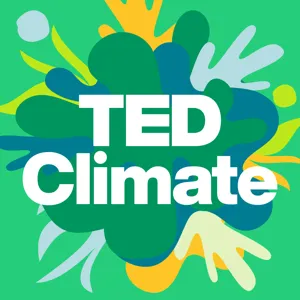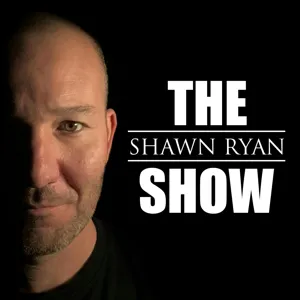Podcast Summary
Navigating Future Climate Challenges with Technology: AI predicts population migration patterns due to climate change, helping prepare for a new era of climate migration. Tools like Canva and Slack save time and reduce stress for businesses. Uncertainty surrounds the Colorado River's future, and a young water deal maker holds its fate.
Technology plays a crucial role in helping us navigate the future challenges of climate change, particularly in forecasting population migration patterns. Parag Khanna, the founder and CEO of Climate Alpha, uses AI to predict how climate change will impact different parts of the world and determine where people will live in the future. This information is essential for preparing for a new era of climate migration, both for those seeking new homes and the nations receiving them. Meanwhile, tools like Canva and Slack can help reduce stress and save time for businesses as they grow. Additionally, the Colorado River's future is uncertain, and its fate may lie in the hands of a 27-year-old water deal maker. The variables driving human geography, such as demographic imbalances, political upheaval, and economic dislocation, are colliding and will continue to shape where we live in the world.
Addressing the Challenges of Young People for a Stable Global Population: To ensure a stable global population, we need to address the challenges of young people in the areas of climate, geopolitics, and economic pressure, and enable them to live in places where they can thrive and produce the next generation.
We are living in a time of significant change that could lead to massive migrations and a potential population crash due to technological disruption, climate change, and demographic shifts. Young people, who are the present and future of humanity, think differently from previous generations and prioritize connectivity, a sustainable world, and mobility. To make life better for them and ensure a stable global population, we need to address their challenges related to climate, geopolitics, and economic pressure. This requires finding ways to correct the population mismatch between the developed and developing world, and enabling young people to live in places where they can still produce the next generation. The future of humanity depends on understanding and addressing the unique needs and perspectives of this mobile and values-driven generation.
Adapting to Attract Young Talent in a Changing World: Countries must offer opportunities, stability, and quality of life to attract young talent in a world of geopolitical fragmentation and climate stress. Geography can be shaped to prioritize sustainability, mobility, and the well-being of all generations.
As the world faces geopolitical fragmentation, a climate-stressed environment, and a declining population, the competition for young talent is becoming increasingly important. Countries need to adapt and offer opportunities, stability, and a decent quality of life to attract young people. We are living in a world with multiple scenarios, from fortress regions investing in sustainability while warding off migration, to conflictual areas where people are forced to migrate due to survival needs. On the other hand, countries like Canada are opening their borders and focusing on sustainable growth. To shape the future, it's essential to understand that geography is what we make of it. We can move people to resources or technologies to people, and mobility should be considered a human right. The choice is ours to create a civilization that prioritizes sustainability, mobility, and the well-being of present and future generations.
Designing future habitats for perpetual mobility and environmental sustainability: Embrace a more welcoming attitude towards immigration and population mobility to address global challenges and foster a more interconnected world, with economic benefits outweighing challenges.
We need to address the global challenges of population mobility, labor shortages, and environmental sustainability by designing future habitats that allow for perpetual mobility while preserving the environment. This requires thinking beyond sovereignty and focusing on stewardship of the global commons. Regarding immigration, there is a need to shift attitudes towards welcoming people across borders, especially in developed countries that have experienced friction and backlash against large-scale immigration in recent years. The US, despite its challenges, is making progress with immigration reforms, and other countries like Canada are leading the way. Although we should have acted faster, these issues can be addressed, and America, in particular, has the capacity to make significant improvements. The economic benefits of addressing labor shortages through immigration reforms outweigh the challenges, and these reforms can help depoliticize the issue. Ultimately, embracing a more welcoming attitude towards immigration and population mobility is crucial for addressing global challenges and fostering a more interconnected world.
Countries thriving with immigration: Pragmatic leaders recognize the value of cultural diversity and allow assimilation while maintaining national identity, contributing to economic growth and social dynamism.
Countries that embrace immigration and understand its importance for their economic health and social dynamism are thriving, despite some challenges. Germany, Canada, the US, and the UK are examples of this trend, with millions of immigrants contributing to their societies. It's a misconception that the world is ruled by anti-immigrant, xenophobic leaders. Instead, pragmatic leaders recognize the value of cultural diversity and the need for assimilation while maintaining national identity. Even culturally insular countries like Japan are experiencing large-scale migration. To future-proof democratic systems against reactionary outcomes, it's essential to maintain a national ethos while allowing culture to evolve. Success stories like Canada's multiculturalism and the UK's immigration reforms can serve as models for other nations looking to invite people in and ensure everyone feels welcome.
Effectively welcoming and integrating immigrants: Language training, affordable housing, and job training/education are essential for successful immigrant integration, reducing societal tensions, and improving overall well-being. These solutions have been proven effective in various countries.
Welcoming and integrating immigrants effectively in a new society requires a multi-faceted approach. Learning the local language, providing affordable housing, and offering job training and education are crucial steps to help newly arrived individuals contribute positively to their new community and reduce societal tensions. These solutions are not theoretical, but have been successfully implemented in various countries, including the Netherlands, Germany, Finland, and Singapore. Investing in language training and affordable housing can lead to significant improvements in societal integration and overall well-being. The next episode of Ted Climate will explore the future of food through cellular agriculture. Stay tuned! This episode was produced by Ted Climate, part of the TED Audio Collective. It was produced and mixed by Samya Bousid, with story editing by Jimmy Gutierrez, fact checking by Julia Dickerson, project management by Ferre de Grunge, managing production by Wilson Sayers, and executive production by Dan O'Donnell. Special thanks to Anna Phelan and Ritu Jaganath. I'm your host, Dan Cortler.




